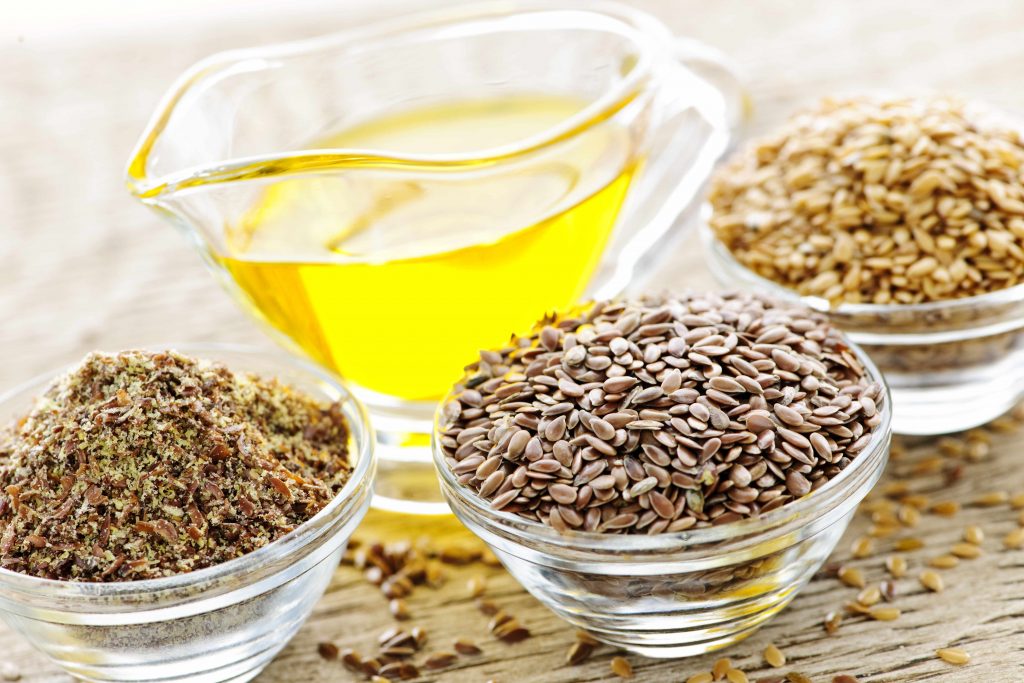-
Mayo Clinic Q and A: Flaxseed — a nutritional powerhouse
 DEAR MAYO CLINIC: I have heard that adding flaxseed to my diet could improve my health, but I know nothing about it. What's the best way to take it?
DEAR MAYO CLINIC: I have heard that adding flaxseed to my diet could improve my health, but I know nothing about it. What's the best way to take it?
ANSWER: Flaxseed is a nutritional powerhouse. Its health benefits come from the fact that it's high in fiber and is a rich source of a plant-based type of omega-3 fatty acid called alpha-linolenic acid. Flaxseed also contains an array of other beneficial nutrients, including soluble and insoluble fiber, antioxidant phytochemicals called lignans, and numerous other vitamins and minerals.
Flaxseed commonly is used to improve digestive health or relieve constipation, but it also may help lower total blood cholesterol and low-density lipoprotein (LDL, or "bad") cholesterol levels, which may help reduce the risk of heart disease. The connection between dietary fiber in flaxseed and digestive health is fairly obvious. But when it comes to potential heart health benefits, it’s not clear which components of flaxseed are most beneficial. It’s possible that all components are beneficial or that they may work together.
Ground flaxseed is easier to digest than whole flaxseed. Whole flaxseed may pass through your intestine undigested, which means you won't get its full nutritional benefit. Flaxseed supplements are available but usually contain only one element of flaxseed nutrition, such as the alpha-linolenic acid -rich oil, thus limiting their benefit. Flaxseed oil is also available. It has more alpha-linolenic acid than ground flaxseed, but it doesn’t contain all the nutrients of ground flaxseed.
The best way to incorporate flaxseed into your diet is by adding 1 to 4 tablespoons of ground flaxseed to your snacks and meals each day. Flaxseed has a light, nutty taste that can be added to any number of foods. Try mixing 1 tablespoon of ground flaxseed into yogurt, or hot or cold breakfast cereal. You could add 1 teaspoon to mayonnaise or mustard when making a sandwich. Or add ground flaxseed to a smoothie, pancake mix or baked goods.
Unripe and raw flaxseed can have toxins that may be harmful in high doses. Consider toasting, cooking or baking the flaxseed to destroy those toxins.
Flaxseed is available in bulk — whole or ground — at many grocery stores and health food stores. Whole seeds can be ground in a coffee grinder and then stored in an airtight container for several months. To preserve the taste and health benefits of flaxseed, keep it in the refrigerator, or freezer and grind it just before using.
Like other sources of fiber, flaxseed should be taken with plenty of water or other fluids. Flaxseed shouldn't be taken at the same time as oral medications or other dietary supplements. As always, talk with your doctor before trying any dietary supplements. (adapted from Mayo Clinic Health Letter) — Katherine Zeratsky, R.D.N, L.D., Endocrinology/Nutrition, Mayo Clinic, Rochester, Minnesota







